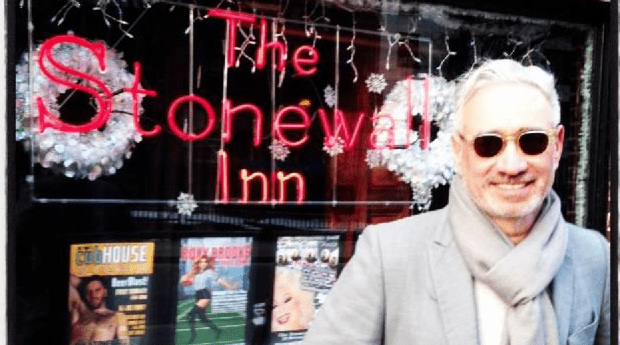Hollywood film director Roland Emmerich’s blockbuster action-adventure movies have grossed more than $3 billion at the box office. But this summer in Montreal the director of Independence Day, Godzilla and 2012 is shooting Stonewall, a “small” film budgeted at just $14 million he says is close to his heart.
War Horse star Jeremy Irvine has been cast as the lead in Emmerich’s dramatization of the Stonewall riots, which kick-started the modern gay-civil-rights movement after police raided the Stonewall Inn during the early morning hours of June 28, 1969. The first-ever gay pride parade was held in New York City in June 1970 to commemorate the protests.
“My friends used to ask me, ‘When are you going to make a gay movie?’” says the 58-year-old Emmerich, who grew up in Germany in a gay-positive family. “But I was my own problem: I did not want to be openly gay at first because in Germany that meant being a niche director, and I didn’t want that. I wanted to make all kinds of movies. Because of that, I had a hard time coming out. Then when I moved to America, all of a sudden I saw all these [out] people working in the film industry, and it gave me the courage to come out. Now that I am, too, part of my job is to show other LGBT people that they can also make any film they want.”
Stonewall was scripted by out writer Jon Robin Baitz and tells the story of a homeless gay teen who gets caught up in the riots.
“There were lots of homeless runaway people living in [Greenwich] Village at the time, and I felt drawn to that,” says Emmerich, a longtime supporter of Outfest and the Gay & Lesbian Center in Los Angeles. “There are very little photos of the riot, but when you look at these photos, they are all of young people, and most of them we don’t know who they are. I am grateful for what these kids did at Stonewall. They were heroes.”
Emmerich filmed big-budget movies, including 2004’s The Day After Tomorrow and last year’s White House Down, in Montreal and is back in the city because he loves filming there.
“I like the facilities in Montreal, but mostly I like the city’s great film crews,” he says. “As a filmmaker, the most important thing you learn is the [quality of the] crew you have. A lot of big movies have been shot here, so they have a lot of experience.”
Emmerich is still nervous about the project, however. “I always am when I make a new movie, but this film scares the living shit out of me,” he says. “No matter history, you can talk to four different people who were at Stonewall and you will get four different stories. I feel such a big sense of responsibility because Stonewall is such an important historic event in gay history.”
Emmerich is still looking for gay and gay-friendly extras, especially between the ages of 18 and 30. “When you look at photos of that time, it was [mostly] hippies. Even gay people looked like hippies. So we need people with longer hair and sideburns, which is a little difficult to find. The Village was also a hotspot for Latinos and black people. It was a hotbed, an interesting mix of people.”
Anyone interested in being a paid extra in Stonewall should email Julie Breton at stonewall@figuration.net. Be sure to include a couple of recent photos; your name, height, weight and age; your email address and telephone number, and whether or not you are a smoker or are willing to smoke fake cigarettes.
Filming will take place in June and July.


 Why you can trust Xtra
Why you can trust Xtra


